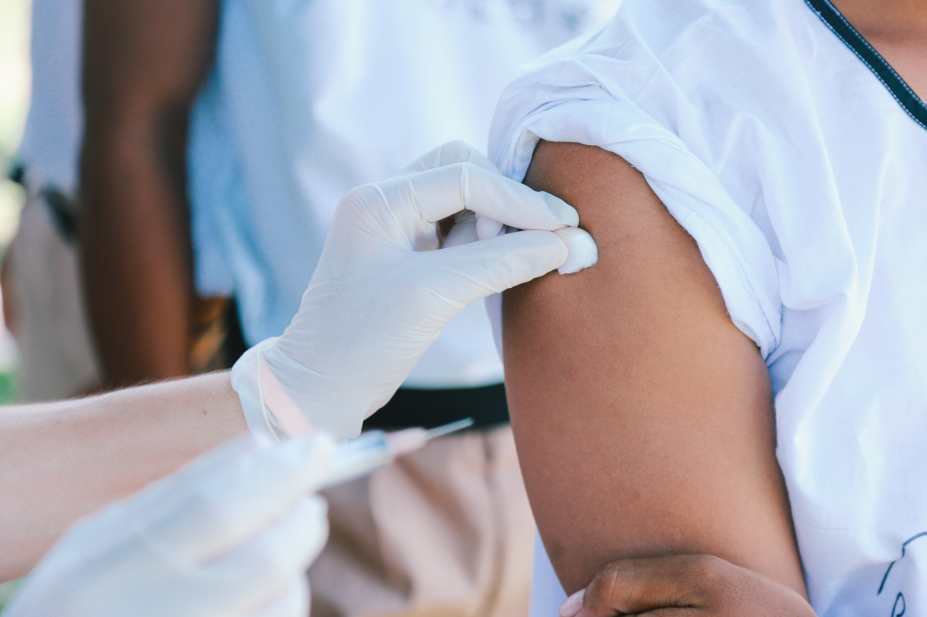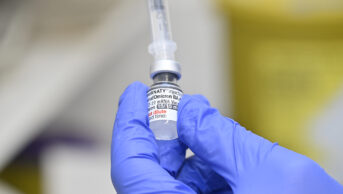
Shutterstock.com
Information on how pharmacists can access a central stock of flu vaccines will not be released until after the start of the flu season in September 2020, the Department of Health and Social Care (DHSC) has said.
It comes amid concerns from community pharmacists and GPs across England about whether there will be sufficient flu vaccine supplies to cope with demand, after the government announced an expansion to those eligible for free vaccines to cover 30 million people.
The flu vaccine programme for 2020/2021, which was expanded to mitigate the risks around co-circulation of COVID-19 and flu, now includes households of those on the NHS shielded patient list, and children aged 11 years. People aged between 50–64 years may also be eligible for an NHS flu vaccine “subject to vaccine supply”.
In a statement to The Pharmaceutical Journal on 12 August 2020, a spokesperson for the DHSC said it had “secured additional flu vaccines for those who need them, and additional guidance will be provided to GPs and pharmacists on how to access them in September”, in line with a letter previously published on 5 August 2020.
The DHSC said it has procured the additional vaccines to help increase uptake in those who are in ‘at-risk’ groups, and for the additional cohorts announced, including those aged 50–64 years.
But information has yet to be published on how these vaccines will be allocated or accessed.
Graham Stretch, chief pharmacist at Argyle Health Group and clinical director of Brentworth primary care network (PCN) in London, said issues around vaccine stock are “obvious”.
“What I wouldn’t like to see is lots of worried, well people in their 20s and 30s getting flu jabs in September because they’re motivated, and there being deficient stock for the at-risk groups under 65,” he said.
“We need, as PCNs, to coordinate and collaborate now with pharmacy if we’re going to have any chance at all of delivering the flu jab in great numbers,” he added.
Amanda Riley, a GP and clinical director of Darlington PCN — which is running a drive-through vaccination service this year — told The Pharmaceutical Journal that her GPs could be reliant on community pharmacy to help vaccinate the thousands of additionally eligible patients in the area.
Where Darlington GPs would usually have 44,000 patients eligible for flu vaccination, the expansion has increased that population to 65,000, she said.
“We’ve only got 25,000 vaccinations ordered and we can’t order more,” she said, explaining that the orders were based on uptake in previous years and flu vaccine manufacturers have declined to accept further orders.
This leaves a deficit of 40,000 between the number of vaccines available and the 65,000 patients now eligible to receive one.
However, Greg Burke, chief officer at County Durham and Darlington local pharmaceutical committee, said it would be “highly unlikely, certainly at the moment, that the community pharmacies in Darlington have sufficient vaccine supply to accommodate those additional 40,000”.
Martin Marshall, chair of the Royal College of GPs, said he had asked “for assurance from the government that there is enough supply of vaccines to go around”.
“The two main challenges were always going to be procuring enough supply of the vaccine, and logistics of delivering it to patients on a scale potentially twice as big as usual,” he said.
Two flu vaccine suppliers, Seqirus and Sanofi Pasteur, both told The Pharmaceutical Journal that they have increased manufacture of the vaccines to meet the new demand, with Sanofi Pasteur adding that it “will be bringing in millions of additional doses this season”.
In July 2020, The Pharmaceutical Journal reported that the government had considered using flu vaccines that were not currently licensed in the UK to meet the additional demand, including the recombinant vaccine Flublok, which is expected to be authorised in the UK in November 2020.


